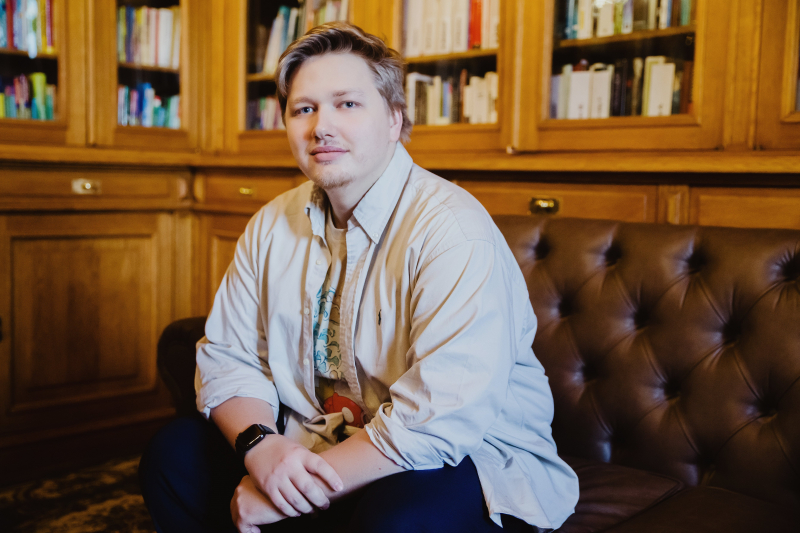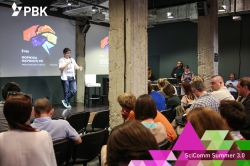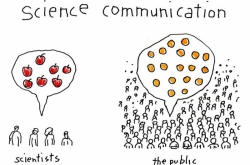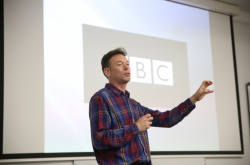Why did you choose the Science Communication program for your Master’s studies?
My first degree is in biophysics; I graduated from Lobachevsky State University of Nizhny Novgorod. At some point during my studies, I had an opportunity to move to Singapore and to work in biomechanics, but plans had changed and this trip was constantly being postponed. I’d been worrying a lot about that and decided to look for other options.
One may say I overdid it, as I decided to choose a whole new professional field. I stumbled upon an interview with someone from ITMO University’s Center for Science Communication and found out that there’s a program of the same name. I was fascinated by the fact that it was just launched, which meant that there was an opportunity to create something new basically from scratch. Another advantage of the program is that it’s related to science in a way, so I thought it won't be hard for me to understand what’s going on: I’m a biologist, after all!
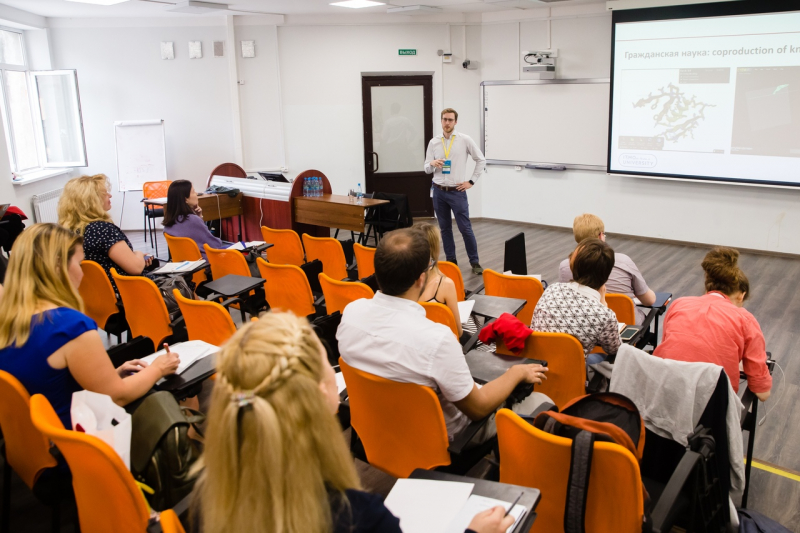
What do you recall best from your days as a Master's student?
Due to us being the first students of this program, a lot was new not only for us, but also for the staff. Sometimes the curriculum was changing right on the spot. It was very unusual, but in a good way. For example, if an expert was visiting St. Petersburg only for one day, but they were highly proficient, the curators were somehow able to arrange a lecture for us. It could mess up your personal plans, but it certainly improved the content of the program.
What struck me is how open Center for Science Communication employees, teachers and partners were. Everyone was ready to offer an internship, a job, and, of course, to share their experience.
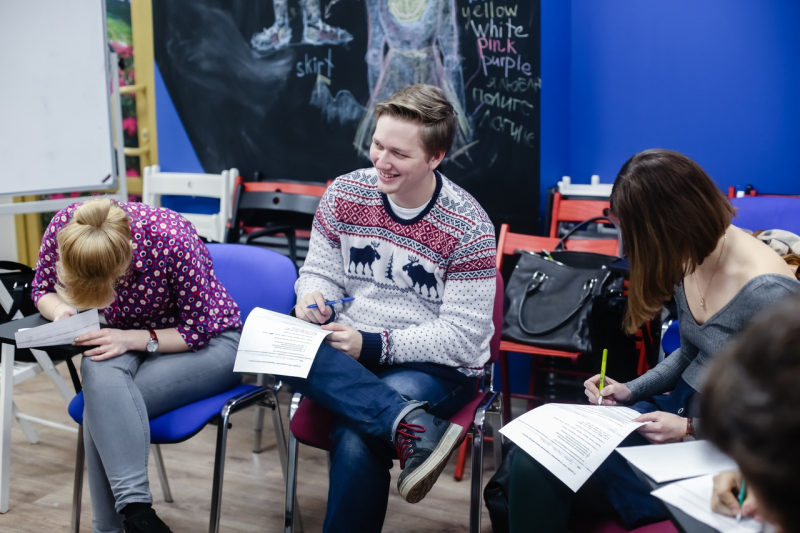
How hard was it to switch from natural sciences to humanities?
At first the most difficult thing was probably the creative aspect. We had to write a lot, to come up with concepts, even to conduct interviews. Of course, it’s not something a conventional biologist does all the time. My thesis was dedicated to the way scientists are depicted in comic books. I chose this topic because I’ve been into geek culture since I was a child. However, I had no idea how to begin my research.
My biophysical background didn’t help either. It turned out that it’s not much easier to define a research problem outside the laboratory. There’s a different set of research tools, other traditions and rules, which may vary a lot from the ones in biology. I had to adapt, to learn quickly and to read classic authors in the field of humanities. It was also hard to change the perspective: to stop being a fan and to become a researcher.
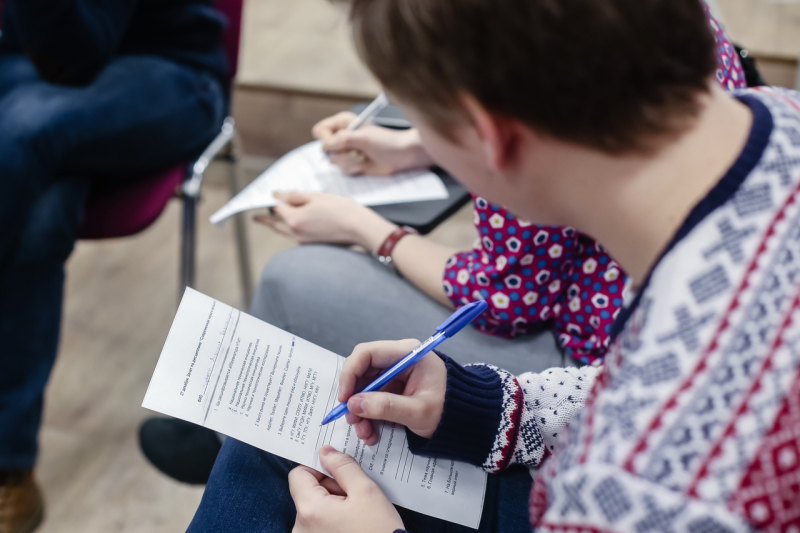
From what I know, you went to Japan during your studies. Could you tell us about this trip?
It was an exchange program organized by the Junior Chamber International Japan. I got there in my second year of getting a Master’s degree. Science Communication curators knew that I always wanted to visit Japan, so they suggested that I apply for it. I passed the interview and proved my English skills. That’s how I got in.
It was an invaluable experience for me, which made it clear how very different our cultures are. I was struck by the way every detail is thought-through in Japan. My favorite example would be subway trains. Firstly, in Japan trains are usually late for less than 0.1 seconds, which amazes in itself. Secondly, there’s basically no gap between the train and the platform. I think that a lot of things in Japan are the results of neverending aspiration to an ideal.
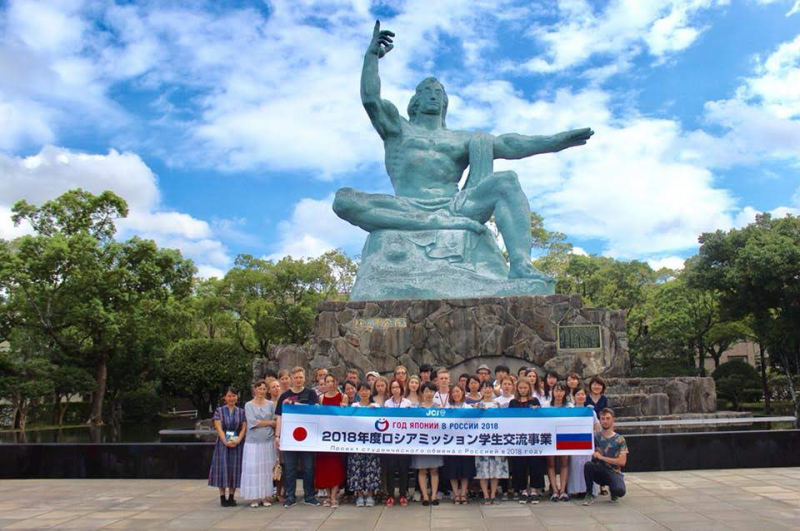
From studying to working
You started to participate in various science popularization projects during your studies. How did it happen?
The studying process in itself leads you to this. For example, one of the program’s partners is the Cancer Prevention Foundation, headed by Ilya Fomintsev. Ilya, as a guest lecturer, offered Master’s students to participate in a project about vaccination. I don’t remember its details very well, to be honest. What was needed from us was to collect the data, analyze it statistically and publish some popular science materials as a result. When the project was completed, Ilya said that he has an idea for a new media project on cancer prevention and offered me to participate. I was working there in its first stages: I helped write project statements, met programmers, discussed with colleagues which topics need to be covered and so on. It’s a pity that I left for BIOCAD soon after and weren’t there for the launch.
After that, I was working at Interesting Articles, a project by Mikhail Kafanov. We were reporting on the best pieces published by Russian and international mass media. I’d learned a lot about the media landscape during this period: I started to distinguish democratic and republican media, and different journalists’ styles. We had a list of about 600 sources that we were checking during the day. Articles that we thought were the best were compiled and published. A perfect job for someone who wants to work with text.
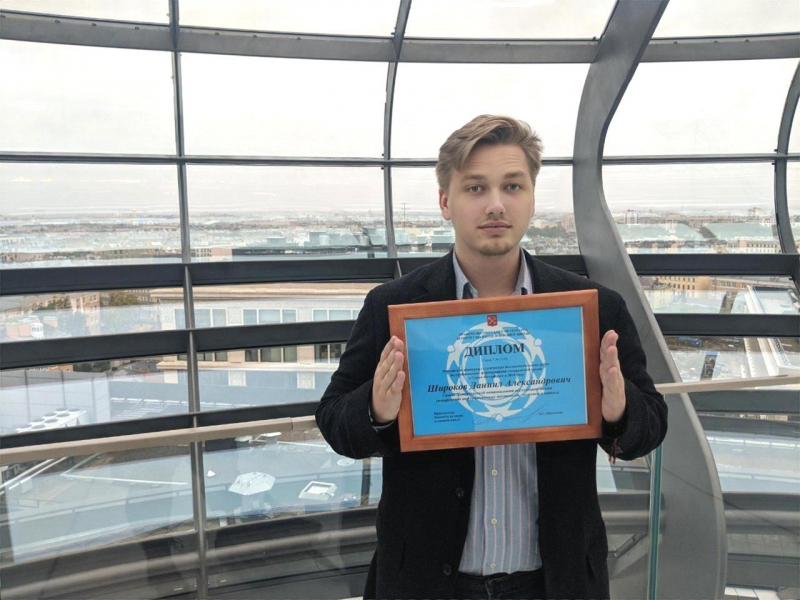
Did the knowledge that you received at the science communication program come in handy back then?
When I first saw the list of 600 sources I realised that, thanks to the program, I’d already read many of them. It made me stress less about seeing 600 lines in the Excel document. Things that I’d learned during the science journalism course also helped me. It was easier to come up with short ledes, to write letters, to structurize interviews and texts.
Another indisputable feature of the program is, of course, the contacts. During the studies, your contact list gets really long, you meet potential employers, experts and other notable members of the industry. Networking is a part of studying here. Even my current job is connected to the program.
How so?
Around two years ago, Severgroup Medicine – a company that manages Scandinavia clinics – started looking for employees to work at their new scientific department. Daria Denisova, the current Director of ITMO University’s Center for Science Communication, introduced me to the future head of the department as a potentially fit person for the job with a background in biology. The interview went great and I became a science communicator there.
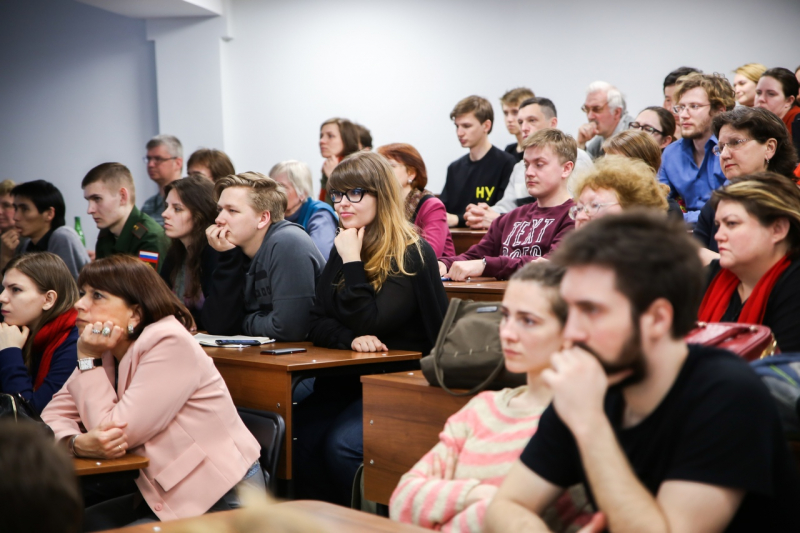
What are your responsibilities there?
Mainly I work in two directions. First of all, I check and analyze the things published by the clinic. I check if the articles correspond to real research. Secondly, I write summaries on various topics and check how efficient this or that medicine is or, for example, whether fitness trackers influence weight loss. I go through research paper databases, check sources and create a short summary, so that the company could see if it makes sense to implement certain technologies at the clinic.
It's an extremely interesting job: I love reading lots of articles. One moment you’re starting to understand how blood analysis chips work, and then you’re reading something on the history of hydroponics. You learn new things all time and process a huge amount of data.
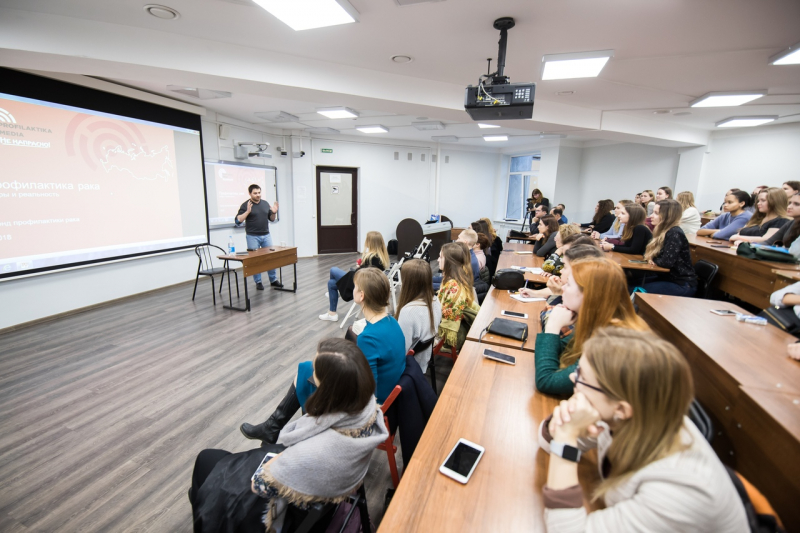
Does your degree in biophysics help in your job?
I think it would be impossible to work without it, or at the very least it would be much harder. Having it doesn’t make you an expert, but helps to get into the topics and to analyze it reasonably. Plus, thanks to studying science communication, it’s easier to put various facts together and to create an appropriate review.
Another thing that helps is scientometrics. Shortly put, it allows you to check a journal's rating and to see how relevant it is in the research community. Even if you’re not an expert, you can somewhat find valid sources. Although I must say these tools are to be applied in moderation and are not entirely reliable.
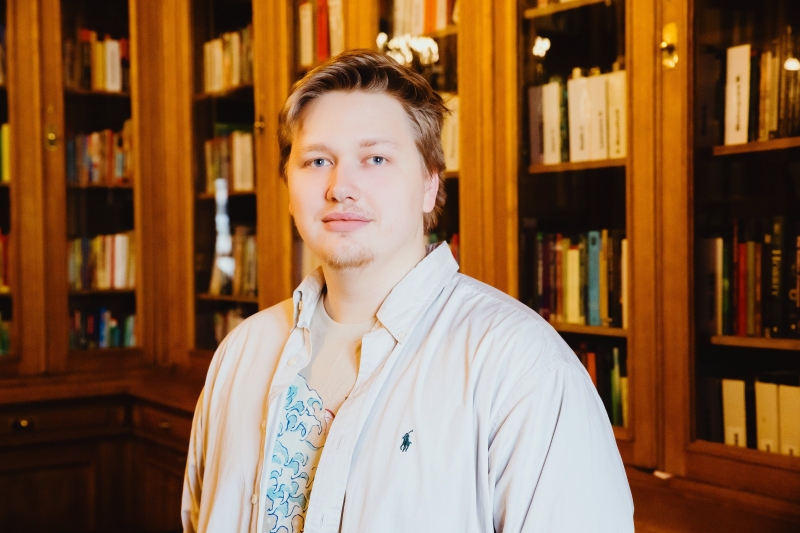
PhD thesis
It appears that you have switched from hard science to humanities. How did it influence the way you see arguments between researchers in hard science and in humanities?
When I was a biophysicist, I was sure the stereotypes about humanities and science were true. Science was the only thing I took seriously. Now I understand that it’s a very close-minded idea. Anthropology, sociology, or philosophy may not use precise methods as often, but to treat them without respect is a mistake. Greek philosophers used to carry out experiments to check their hypotheses, too, after all.
What’s your PhD thesis about?
I study the way scientific knowledge transforms in a modern university, how the perfectly clear scientific conclusion that appeared as a result of experiment becomes available to the public.
I’m trying to understand what’s going on when a scientist is writing an article, how this knowledge is modified by their colleagues and editors who read it or use it for their own working or educational purposes.
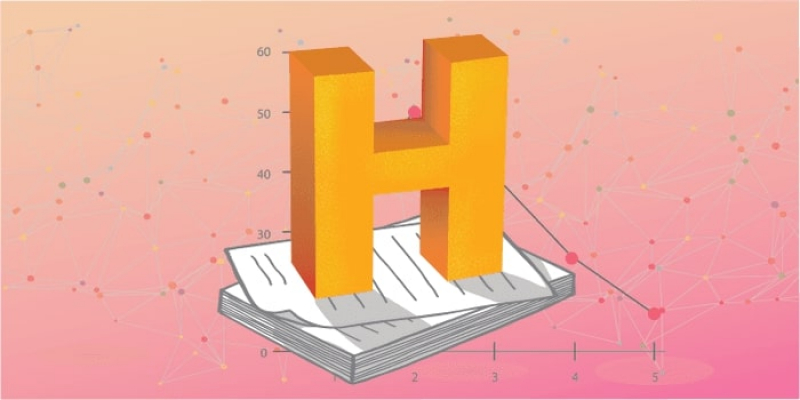
What results have you already acquired?
Well, for example, there’s an established minimum of papers that have to be published by an organization. Basically, it indicates the amount of publications a research and educational organization must legally produce during some time period. Because of that, some universities that weren’t publishing lots of articles before – like conservatories and art colleges – have to publish something in indexed journals. Music and art teachers must follow these requirements.
So, I talked to the employees of a conservatory and they told me about an interesting dilemma. There’s not that many scientific journals that are dedicated to music, and many of them are not appreciated by the professional community. At the same time, journals that music researchers respect are not indexed. As a result, they have to choose: either to fulfill their requirements or to improve their status in the community.
I don’t tend to see the lack of scientific papers as a negative trait. Some scientists prefer monographs, others report by means of patents, and some just work in a field where it’s not that common to publish your works.
Are there examples of positive cases when the insistence on publishing can be useful?
It depends on how exactly you do that. If you create a “scientometric regime”, then the amount of publications may rise, but their quality may go down. Scientists might decide to make several articles out of one, or even to create a citation cartel. On the other hand, a published paper is an opportunity to make sure your results are known to be yours, to share them with colleagues from all over the world and to find potential partners.
